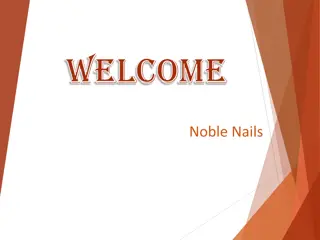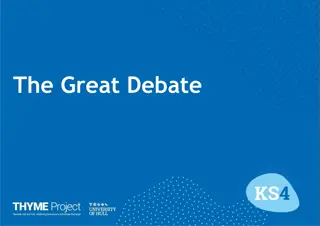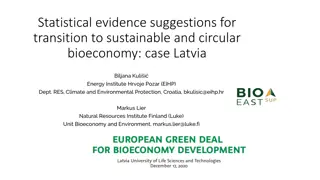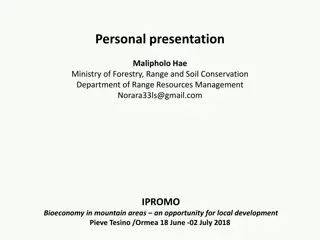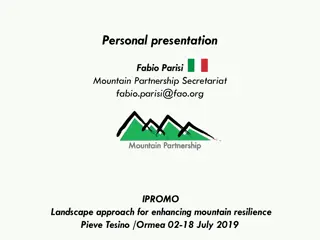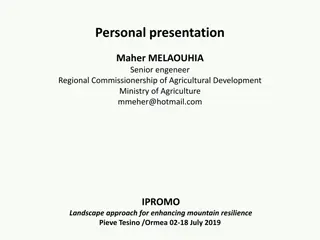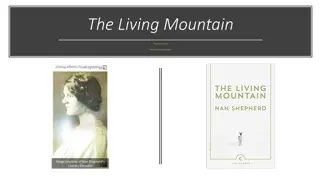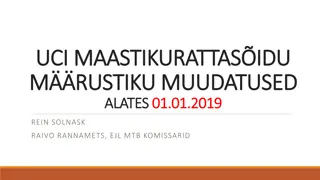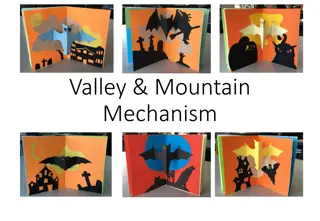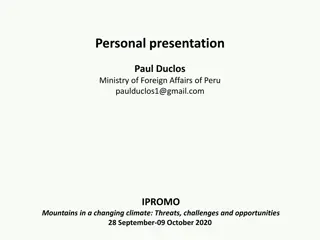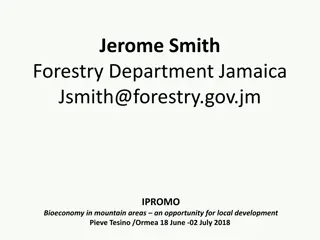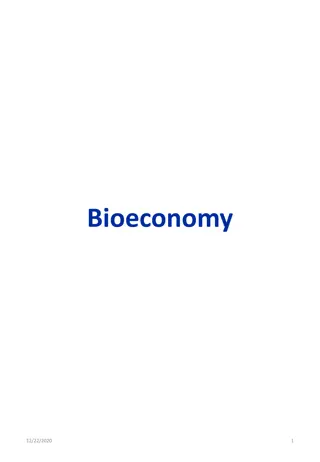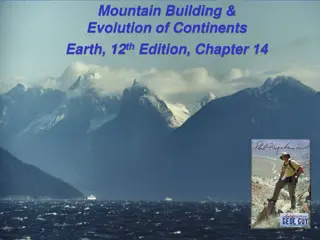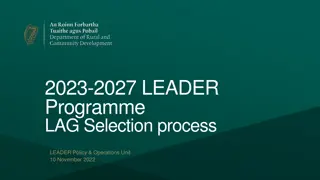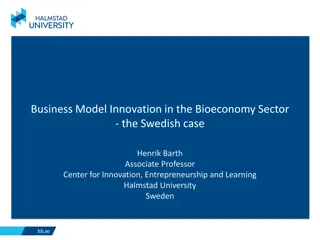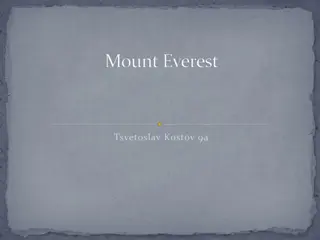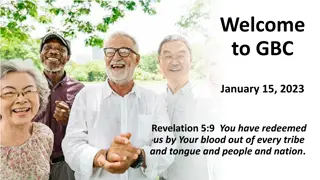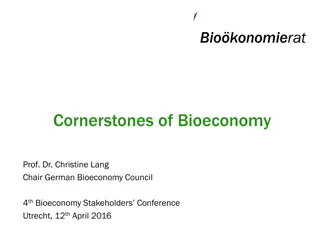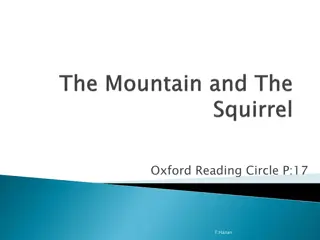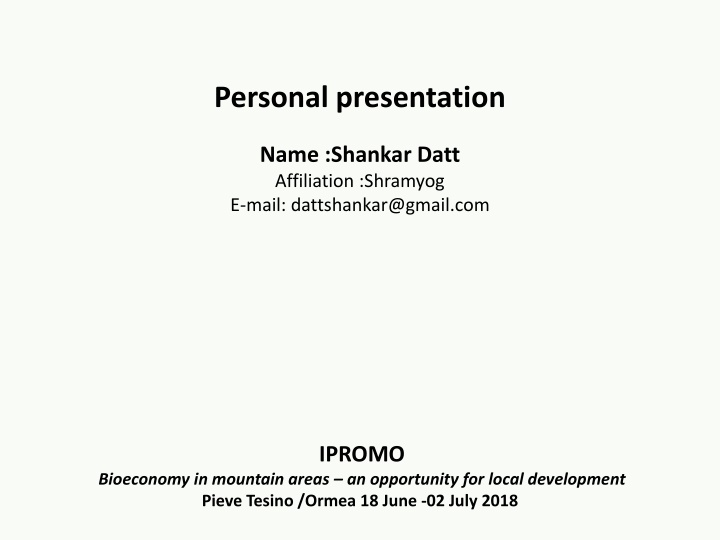
Bioeconomy Opportunities in Mountain Areas for Local Development
The potential of bioeconomy for local development in mountain regions. Learn about sustainable resource management, social capital building, and livelihood opportunities. Discover a project promoting dignity and healthy ecosystems through community involvement and skill development.
Uploaded on | 3 Views
Download Presentation

Please find below an Image/Link to download the presentation.
The content on the website is provided AS IS for your information and personal use only. It may not be sold, licensed, or shared on other websites without obtaining consent from the author. If you encounter any issues during the download, it is possible that the publisher has removed the file from their server.
You are allowed to download the files provided on this website for personal or commercial use, subject to the condition that they are used lawfully. All files are the property of their respective owners.
The content on the website is provided AS IS for your information and personal use only. It may not be sold, licensed, or shared on other websites without obtaining consent from the author.
E N D
Presentation Transcript
Personal presentation Name :Shankar Datt Affiliation :Shramyog E-mail: dattshankar@gmail.com IPROMO Bioeconomy in mountain areas an opportunity for local development Pieve Tesino /Ormea 18 June -02 July 2018
Education Master of philosophy (M. Phil. ) Annamalai University Tamil Nadu, India, Specialization Economic Botany (2008) Master of Science (M.Sc.) Wageningen University, Netherland environmental science, Specialization Integrated Water Resource Management (2013) Master of Science (M.Sc. Kumaun University Nainital, India Botany (2003) Bachelor of Science (B. Sc.) Kumaun University Nainital, India Life science (2001) Employment and main activities Year: 2004 -2008 Orgnization:Pragya Position: Team member ( Natural Resource Managment) Year: 2008-2011 Orgnization :People s science institute Position: Project associate ( Natural Resource Managment) Year: 2013-Till Now Orgnization: Shramyog Position: Founder member
Other interests (volunteer work, hobbies etc.) Ford fellow : 2011- 2013 Climate-(KIC) -Knowledge Innovation Community conducted by European Institute of technology (EIT), 2013 UNEP- Eco-Peace leadership center, South Korea Fellow 2016 Rufford foundation Small grant I and II: 2015-2018 Owner and publisher of a monthly news paper Shramyog patra
Presentation of a project you are working on 1/3 Origin of idea Question Can Our communities live with dignity in a healthy ecosystem? Dignity: People should not be Material deprive, asset less, dependent, voiceless, powerless, isolated and vulnerable Healthy ecosystem: Sensible and sustainable uses of natural resources. Answer: Yes it is possible! Strong social capital and regular livelihoods opportunities can do it!!!
Presentation of a project you are working on 2/3 What we did to develop Strong social capital and livelihood development Start a programme : Community managed Local resource and skill based livelihood development Local resource: Water, forest, land and bio-diversity Local skills: Agriculture, livestock, folk music, handicraft, rural architect etc.
Presentation of a project you are working on 3/3 Our Strategy Characteristic Conventional Development Strategy Our Development Strategy End Goal ? ? ? ? Human development and sustainability of the natural resources. Meeting the Basic Needs of the Common People and Conflict Resolution Development on a sustainable basis with social justice. Engineof Development Industrialization Central Thesis Maximizing the monetary wealth of the nation Assumptions Wealth of the nation will trickle down to the poorest Centralized, non-participatory Transfer of resources from poor to the rich, rural to urban areas. Downgrades traditional knowledge in favour of 'modernism' Antithetical, emphasizes mono-cultures Nil. Systems are created to achieve the desired ends. Decision-Making Resource Distribution Decentralised, participatory Resource sharing through employment and distribution of means of production Builds on traditional knowledge Knowledge Systems Relationshipwith nature Harmonious, recognizes strength in diversity Developed by Dr Ravi Chopra Outcomes 40 villages in the Western Himalayas 1000 households Direct beneficiary 650 households 85 functional Community based organizations Average regular cash income increase about (35USD)2200INR per year

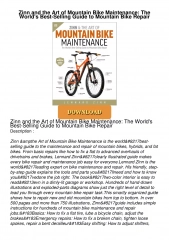
![[PDF READ ONLINE] Mountain Claiming (BIG-Secrets of Mountain Men Book 3)](/thumb/42287/pdf-read-online-mountain-claiming-big-secrets-of-mountain-men-book-3.jpg)
